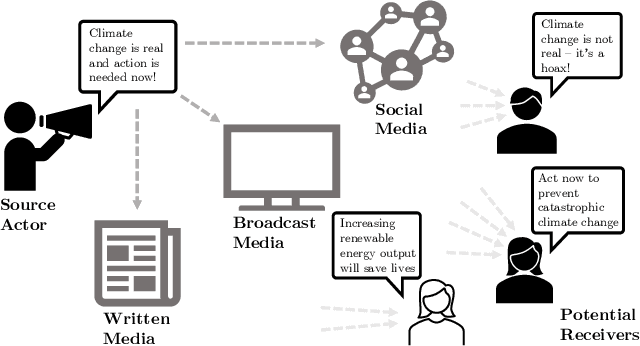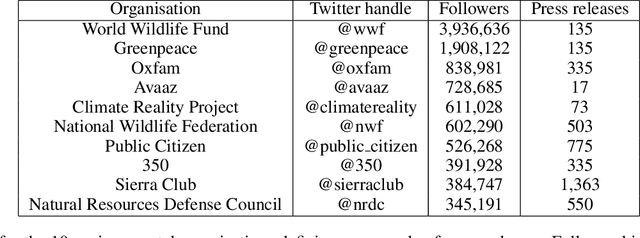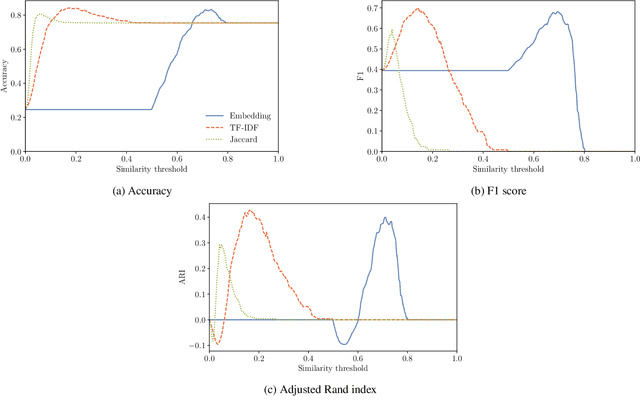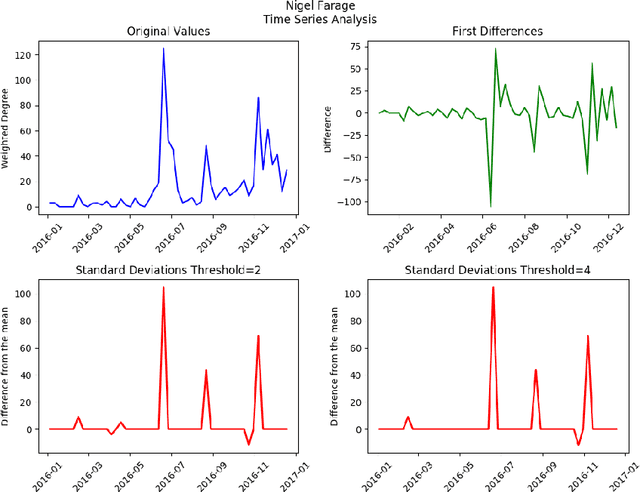Hywel T. P. Williams
Centre for Environmental Intelligence, University of Exeter, Exeter, UK, Department of Computer Science, Faculty of Environment, Science and Economy, University of Exeter, Exeter, UK
Automated classification of natural habitats using ground-level imagery
Aug 26, 2025Abstract:Accurate classification of terrestrial habitats is critical for biodiversity conservation, ecological monitoring, and land-use planning. Several habitat classification schemes are in use, typically based on analysis of satellite imagery with validation by field ecologists. Here we present a methodology for classification of habitats based solely on ground-level imagery (photographs), offering improved validation and the ability to classify habitats at scale (for example using citizen-science imagery). In collaboration with Natural England, a public sector organisation responsible for nature conservation in England, this study develops a classification system that applies deep learning to ground-level habitat photographs, categorising each image into one of 18 classes defined by the 'Living England' framework. Images were pre-processed using resizing, normalisation, and augmentation; re-sampling was used to balance classes in the training data and enhance model robustness. We developed and fine-tuned a DeepLabV3-ResNet101 classifier to assign a habitat class label to each photograph. Using five-fold cross-validation, the model demonstrated strong overall performance across 18 habitat classes, with accuracy and F1-scores varying between classes. Across all folds, the model achieved a mean F1-score of 0.61, with visually distinct habitats such as Bare Soil, Silt and Peat (BSSP) and Bare Sand (BS) reaching values above 0.90, and mixed or ambiguous classes scoring lower. These findings demonstrate the potential of this approach for ecological monitoring. Ground-level imagery is readily obtained, and accurate computational methods for habitat classification based on such data have many potential applications. To support use by practitioners, we also provide a simple web application that classifies uploaded images using our model.
Artificial Intelligence for Collective Intelligence: A National-Scale Research Strategy
Nov 09, 2024



Abstract:Advances in artificial intelligence (AI) have great potential to help address societal challenges that are both collective in nature and present at national or trans-national scale. Pressing challenges in healthcare, finance, infrastructure and sustainability, for instance, might all be productively addressed by leveraging and amplifying AI for national-scale collective intelligence. The development and deployment of this kind of AI faces distinctive challenges, both technical and socio-technical. Here, a research strategy for mobilising inter-disciplinary research to address these challenges is detailed and some of the key issues that must be faced are outlined.
The Language of Weather: Social Media Reactions to Weather Accounting for Climatic and Linguistic Baselines
Jul 10, 2024Abstract:This study explores how different weather conditions influence public sentiment on social media, focusing on Twitter data from the UK. By considering climate and linguistic baselines, we improve the accuracy of weather-related sentiment analysis. Our findings show that emotional responses to weather are complex, influenced by combinations of weather variables and regional language differences. The results highlight the importance of context-sensitive methods for better understanding public mood in response to weather, which can enhance impact-based forecasting and risk communication in the context of climate change.
CIDER: Context sensitive sentiment analysis for short-form text
Jul 15, 2023Abstract:Researchers commonly perform sentiment analysis on large collections of short texts like tweets, Reddit posts or newspaper headlines that are all focused on a specific topic, theme or event. Usually, general purpose sentiment analysis methods are used which perform well on average but miss the variation in meaning that happens across different contexts, for example, the word "active" has a very different intention and valence in the phrase "active lifestyle" versus "active volcano". This work presents a new approach, CIDER (Context Informed Dictionary and sEntiment Reasoner), which performs context sensitive sentiment analysis, where the valence of sentiment laden terms is inferred from the whole corpus before being used to score the individual texts. In this paper we detail the CIDER algorithm and demonstrate that it outperforms state-of-the-art generalist sentiment analysis on a large collection of tweets about the weather. We have made our implementation of CIDER available as a python package: https://pypi.org/project/ciderpolarity/.
Using Semantic Similarity and Text Embedding to Measure the Social Media Echo of Strategic Communications
Mar 29, 2023



Abstract:Online discourse covers a wide range of topics and many actors tailor their content to impact online discussions through carefully crafted messages and targeted campaigns. Yet the scale and diversity of online media content make it difficult to evaluate the impact of a particular message. In this paper, we present a new technique that leverages semantic similarity to quantify the change in the discussion after a particular message has been published. We use a set of press releases from environmental organisations and tweets from the climate change debate to show that our novel approach reveals a heavy-tailed distribution of response in online discourse to strategic communications.
Complex networks for event detection in heterogeneous high volume news streams
May 28, 2020



Abstract:Detecting important events in high volume news streams is an important task for a variety of purposes.The volume and rate of online news increases the need for automated event detection methods thatcan operate in real time. In this paper we develop a network-based approach that makes the workingassumption that important news events always involve named entities (such as persons, locationsand organizations) that are linked in news articles. Our approach uses natural language processingtechniques to detect these entities in a stream of news articles and then creates a time-stamped seriesof networks in which the detected entities are linked by co-occurrence in articles and sentences. Inthis prototype, weighted node degree is tracked over time and change-point detection used to locateimportant events. Potential events are characterized and distinguished using community detectionon KeyGraphs that relate named entities and informative noun-phrases from related articles. Thismethodology already produces promising results and will be extended in future to include a widervariety of complex network analysis techniques.
 Add to Chrome
Add to Chrome Add to Firefox
Add to Firefox Add to Edge
Add to Edge